 By:
Gaston
By:
Gaston
At the crossroads of health and pleasure, the eternal dispute between smoking tobacco and cannabis has kept society divided for decades. While tobacco has been the undisputed protagonist in smoking habits, marijuana has emerged as an alternative that has gained ground in numerous regions of the world. In this article, we will explore the complexities of both, unraveling the myths and realities surrounding tobacco and weed, and assessing whether smoking marijuana can be considered a healthier option.
Tobacco has been a constant presence in society for centuries, but its popularity has been overshadowed by the growing health problems associated with smoking. The conventional cigarette contains a myriad of toxic and carcinogenic substances that contribute to the development of cardiovascular and pulmonary diseases, as well as various types of cancer. Additionally, nicotine, an addictive component of tobacco, has kept millions of people trapped in a pernicious cycle of dependency.
In contrast, marijuana has experienced a shift in social perception in many places, moving from being stigmatized to being seen as a recreational and medicinal option. Although smoking weed also involves inhaling harmful substances, the chemical composition of cannabis is different from that of tobacco. Cannabinoids, such as THC and CBD, present in marijuana, have demonstrated medicinal properties that could counteract some of the negative effects associated with smoking.
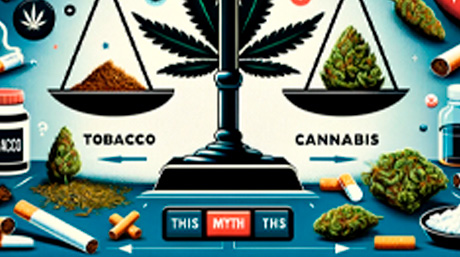
In terms of health risks, various scientific studies have attempted to compare the effects of tobacco and cannabis. While both can have negative impacts on lung function and the respiratory system, the lack of conclusive evidence has led to ongoing debates. However, some argue that weed may have a lower risk profile compared to tobacco, especially when consumed moderately and with alternative methods such as vaporization.
The social and cultural dimension also plays a crucial role in this debate. Tobacco consumption has been ingrained in numerous traditions and social rituals, often linked to moments of relaxation and camaraderie. In contrast, marijuana has historically been associated with countercultural subcultures and has been shrouded in legal stigmas. The evolution of social perceptions plays a significant role in determining which option is more accepted and safe.
In the search for safer options, marijuana vaporization and edibles have gained popularity. Vaporization involves heating cannabis to a temperature high enough to release its active compounds without reaching combustion, thereby reducing exposure to harmful substances. Edibles, on the other hand, completely eliminate the inhalation of smoke, providing an alternative for those concerned about the health risks associated with smoking.
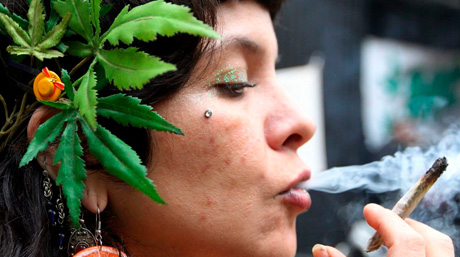
Ultimately, the choice between smoking tobacco or cannabis is multifaceted and personal. Both substances present health risks, and the decision to consume them should be made in an informed manner. As research continues and legislation evolves, new ways to mitigate the risks associated with the consumption of these substances may be discovered.
At the crossroads between tobacco and cannabis, the key may lie in moderation and exploring alternative consumption methods. However, it is essential to recognize that each individual is unique, and what may be suitable for one may not be for another. Health, awareness, and personal responsibility are key elements in this ever-evolving debate.
Now, there is another, more economical alternative with demonstrable benefits compared to cigarette consumption, and that is hash. This cannabis resin, known for its THC concentration, the plant’s main psychoactive compound, has sparked debates about its potential benefits and risks as a smoking option.
Hash, also called “hash” or “chocolate,” has a long history in various cultures around the world. Its production involves the extraction and concentration of cannabis plant resins, creating a final product that is usually presented in the form of blocks, powder, or paste. Throughout history, hash has been used in religious rituals, spiritual practices, and recreational activities in various parts of the world.
Advocates of responsible consumption argue that hash offers a more intense and controlled smoking experience compared to other forms of cannabis. They claim that the THC concentration can provide relief for those seeking to alleviate chronic pain, reduce stress, or improve sleep quality. Additionally, some suggest that hash could be a healthier option than smoking tobacco, as it does not contain the harmful chemicals associated with conventional cigarettes.
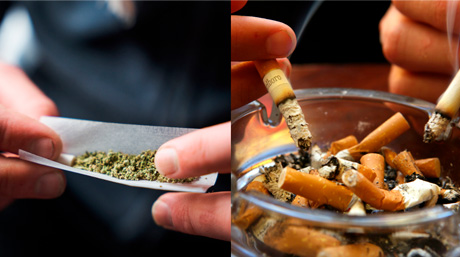
However, hash consumption is not without risks. The high THC concentration may increase the likelihood of unwanted side effects, such as anxiety, paranoia, or long-term cognitive problems. Furthermore, there is concern about the potential for addiction, although scientific evidence on this topic is still limited and controversial.
Despite discussions about its potential benefits, hash remains illegal in many places due to the general prohibition of cannabis. The legalization and regulation of this substance pose legal and social challenges, as laws vary considerably from one country to another and, in some cases, even within specific regions.
Amidst the growing recognition of marijuana for both medicinal and recreational purposes in various regions, an ongoing debate persists about the consumption of tobacco and weed cigarettes, highlighting hash as a smoking alternative that underscores the complexity of balancing tradition, risks, and benefits associated with recreational psychoactive substance consumption. In a context of social evolution, addressing these issues from scientific, medical, and ethical perspectives is imperative to facilitate informed decision-making regarding the regulation and responsible use of substances like cannabis and hash.
Explore and clear all your concerns on our Amsterdam Marijuana Seeds website. Discover in detail our products and obtain relevant information about cannabis.
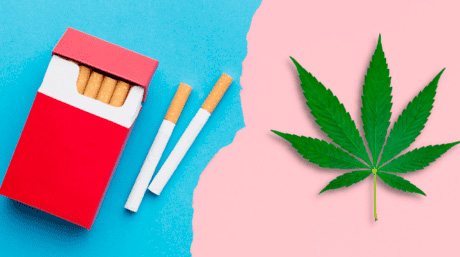
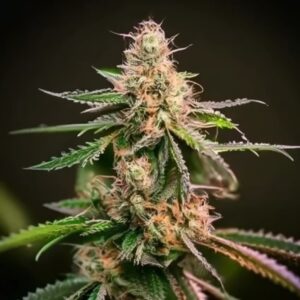


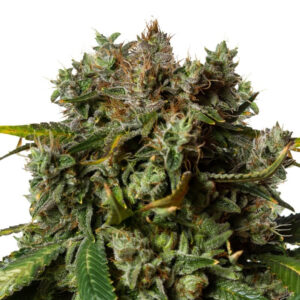

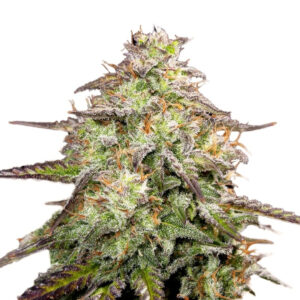
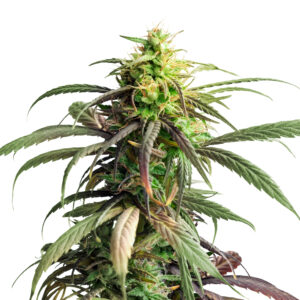






Related Posts
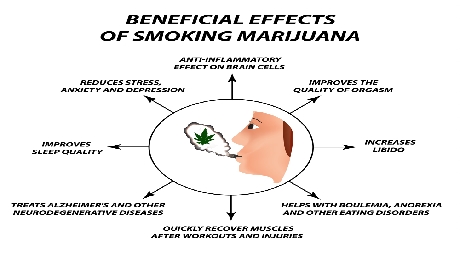
Anno 2019, many people still believe that smoking weed will turn you into a red-eyed, unemployed psychopath for life. But with many different American states decriminalizing the herb for personal use, this has the change to study what cannabis does on a mass scale. Some of the studies have been scientifically proven whereas other haven’t been scientifically proven yet as it is still illegal in many places.
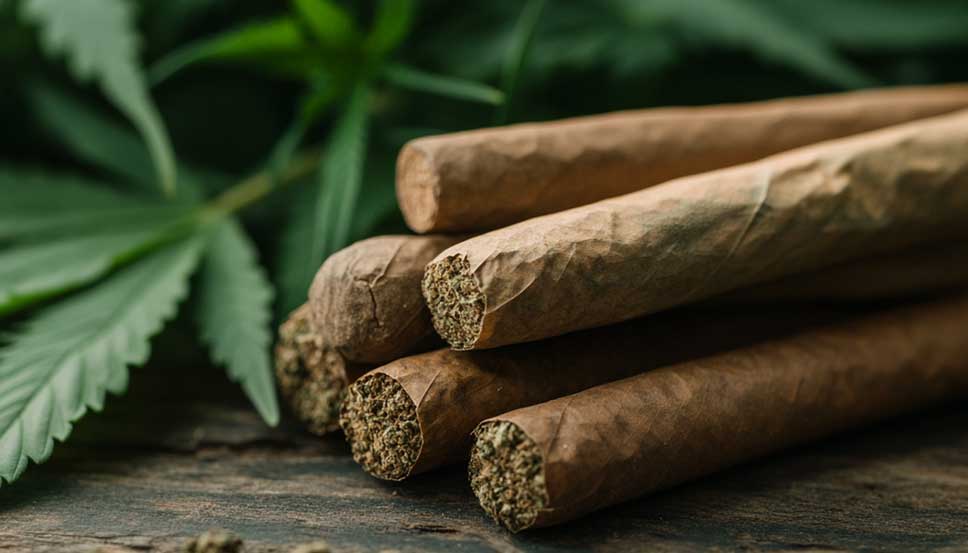
Discover the top tobacco alternatives for joints—natural, nicotine-free herbs like sage, damiana, and lavender that elevate your smoking experience without the harmful effects of tobacco.